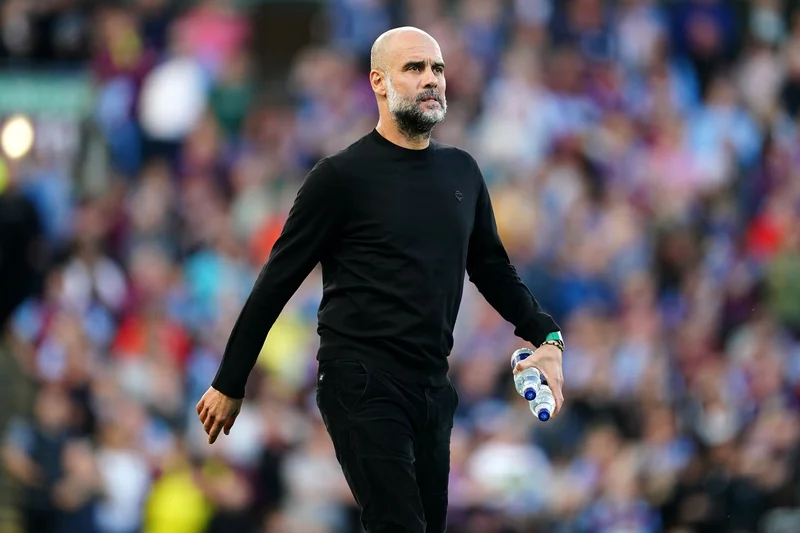Tracking Wealth Through the AI Lens
Tracking Wealth Through the AI Lens
On the surface, the news cycle on October 9th offered up a classic piece of corporate shuffling, the kind of headline that makes most of us yawn and scroll on. PepsiCo, the monolithic giant of snacks and sodas, announced a new Chief Financial Officer (PepsiCo Names Steve Schmitt CFO, Effective Nov 10, 2025). Steve Schmitt is in; Jamie Caulfield is retiring after a long career. It’s a story as old as Wall Street itself.
But I’m telling you, if you just saw it as a line item on a stock ticker, you missed the real story. When I first read the press release, I almost did the same. Another executive changing corner offices, another golden parachute deployed. Then I saw where Schmitt was coming from: Walmart. And not just Walmart, but the finance chief for their massive U.S. omni-channel operations. Suddenly, this wasn't a story about accounting. This is a story about the future. This is a quiet, tectonic shift, a signal flare that one of the world's largest consumer goods companies is fundamentally rewiring its DNA for a new era.
This isn't about balancing the books. It's about building an entirely new kind of machine.
Let’s be clear about who Steve Schmitt is. You have to look past the "CFO" title and examine the blueprint of his career. Yes, he’s a finance guy, but that’s like calling a Formula 1 engineer a "mechanic." His entire professional life has been spent at the nexus of three of the most complex systems on the planet: global logistics (a decade at UPS), fast-moving consumer habits (Yum! Brands), and, most critically, cutting-edge, data-drenched retail (Walmart).
At Walmart, Schmitt wasn't just counting the money coming in from their thousands of stores. He was at the financial helm of their transformation into an "omni-channel" retailer. Omni-channel—in simpler terms, it's the holy grail of modern commerce, the seamless integration of physical stores, online shopping, delivery, and pickup. It’s the incredibly complex digital nervous system that allows you to order groceries on your phone and have them in your trunk an hour later. It’s a beast of data analytics, predictive supply chains, and ruthless cost optimization.
This is the kind of breakthrough that reminds me why I got into this field in the first place. You see, a company like PepsiCo doesn't poach a guy like this to just sharpen pencils. They bring him in to be an architect. They’re not asking him, "How do we make our quarterly earnings look good?" They’re asking him, "How do we build the infrastructure to get a billion products to 200 countries more efficiently, more intelligently, and more directly than ever before?" What does the future of a global food supply chain even look like when it's run less like a series of warehouses and more like a cloud-computing network?

This move feels like a historical echo. It reminds me of the early 20th century when automakers, realizing their business wasn't just about building cars but about mass production, started hiring efficiency experts and assembly-line gurus. They brought in outside DNA to revolutionize their core. PepsiCo is doing the same, but for the digital age. They’re looking at their vast empire—Lay's, Gatorade, Quaker, a billion consumer interactions a day—and seeing it not just as a portfolio of brands, but as a platform.
And Schmitt is the platform guy.
Imagine the sheer scale of the data flowing from those billion daily transactions, the logistical ballet of getting the right flavor of Doritos to the right convenience store before a local festival, the challenge of sourcing potatoes and sugar from around the world amidst a changing climate—this isn't just business, it's a planetary-scale optimization problem. The hiring of a digital and supply-chain native to the CFO role suggests PepsiCo is no longer content to just react to the market; they want to predict it, to build a resilient, intelligent system that anticipates consumer desire and global disruption.
This is the kind of thing that gets me so excited, because the implications are massive. We’re talking about a future where a global food giant can radically reduce waste by matching production to real-time demand with pinpoint accuracy. We’re talking about a supply chain so transparent that you could one day scan a bag of chips and know which farm the potatoes came from. This is where their "pep+" vision for sustainability stops being a marketing slogan and starts becoming an operational reality, driven by data.
Of course, with this immense power comes immense responsibility. Building a system this intelligent and efficient requires a deep commitment to using that power for good—for the planet and its people, not just for the bottom line. But what if they can do both? What if efficiency and sustainability are two sides of the same coin?
Let's step back. A CFO change at a company the size of PepsiCo is never just about one person. It's a statement of intent, a message to investors, employees, and competitors about where the company's priorities lie for the next decade. By bringing in an expert in digital transformation and complex supply chains from the undisputed king of modern retail, PepsiCo is telling the world it's not a 20th-century beverage company anymore. It's aggressively transforming itself into a 21st-century tech and logistics powerhouse that just happens to make some of the world's most popular snacks and drinks. This wasn't a financial decision; it was a strategic one. And it’s one of the most fascinating corporate chess moves I’ve seen in a long, long time.